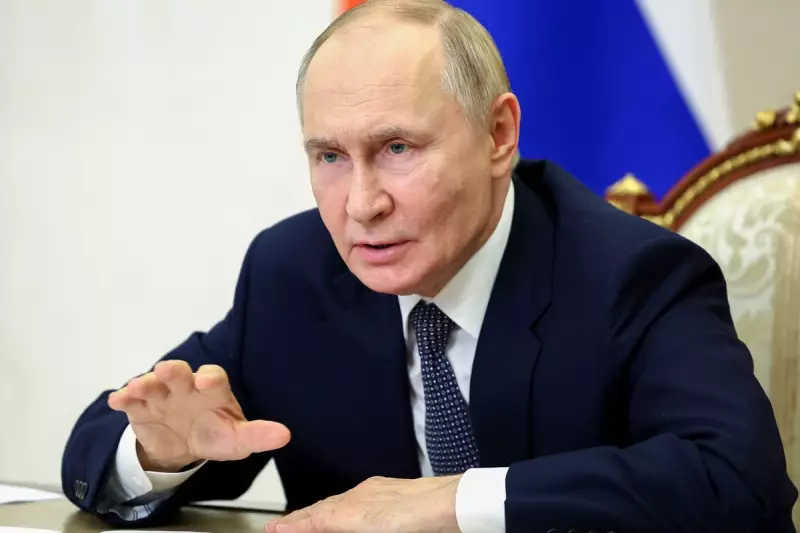
In a development that has sent shockwaves through political circles, Vladimir Putin's latest public address has ignited fierce debate after appearing to endorse extreme political tactics. The Russian leader's comments have found an unexpected supporter in American far-right commentator Charlie Kirk, drawing widespread condemnation from analysts and officials alike.
Kremlin Rhetoric Crosses Atlantic
The controversy centres on Putin's recent speech, where the Russian president appeared to justify violent political action against opponents. While not explicitly calling for attacks, Putin's language strongly implied that eliminating political rivals could be considered legitimate in certain circumstances.
Speaking to his audience, Putin framed such actions as necessary measures in political struggle, leaving many international observers alarmed at the normalization of violence in political discourse.
MAGA Media Embraces Putin's Message
Most concerning to many analysts is how quickly Putin's rhetoric found resonance within certain American political circles. Charlie Kirk, founder of Turning Point USA and a prominent MAGA voice, publicly praised Putin's address, describing it as "refreshing" and commending the Russian leader's "clarity."
Kirk's endorsement came during his popular talk show, where he suggested Western leaders could learn from Putin's straightforward approach to dealing with political opposition.
International Backlash Grows
The response from foreign policy experts and political commentators has been overwhelmingly critical. Many have drawn parallels between Putin's language and the escalating violent rhetoric in American politics, particularly since the January 6th Capitol riots.
"What we're witnessing is the internationalization of political violence normalization," explained Dr. Eleanor Vance, professor of international relations at King's College London. "When leaders like Putin openly discuss eliminating opponents and Western commentators praise this approach, we're crossing dangerous new thresholds in political discourse."
Historical Context and Current Concerns
This incident isn't the first time Putin's statements have raised international concern, but analysts note the timing is particularly sensitive. With multiple elections approaching globally and political tensions already elevated, many fear this type of rhetoric could inspire real-world violence.
The situation becomes even more complex given Kirk's significant influence among young conservative voters in the United States. His platform reaches millions weekly, making his endorsement of Putin's message particularly troubling to democracy advocates.
Broader Implications for Democracy
Security experts warn that this episode represents a worrying trend in international politics. The blending of authoritarian rhetoric with democratic political movements creates new challenges for maintaining civil political discourse.
As one European diplomat noted anonymously: "We're seeing the erosion of democratic norms from multiple directions simultaneously. When violence becomes legitimized in political language, the step to actual violence becomes much shorter."
The ongoing controversy highlights the increasingly interconnected nature of global political discourse and raises urgent questions about how democratic societies should respond when foreign authoritarian influence seeps into domestic politics.






